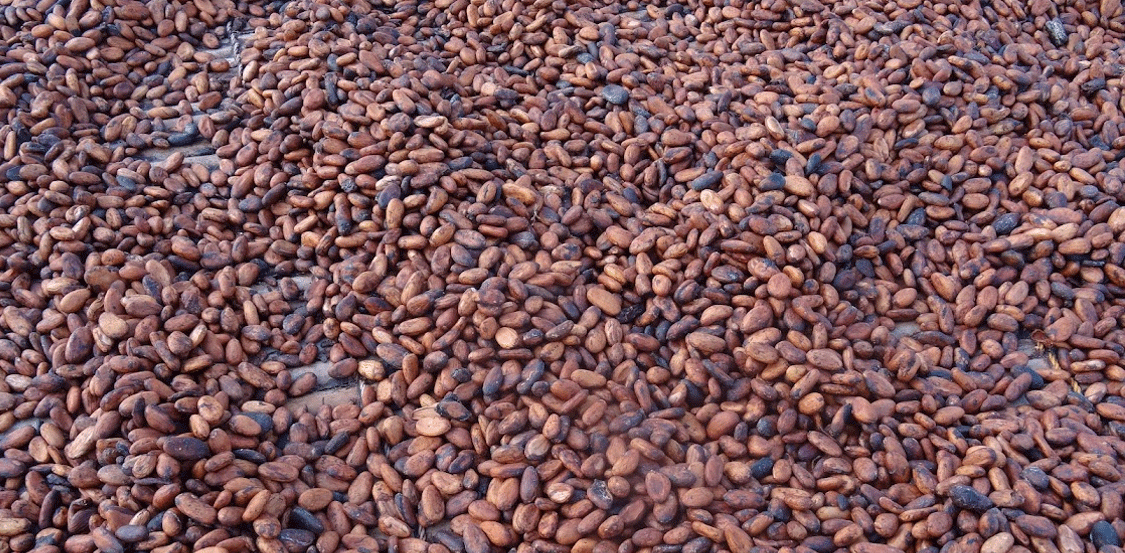Fermentation functional co-cultures: a metabolite-driven approach to improve cocoa beans quality, safety, and sustainability
Background

The total world production of cocoa beans, the main ingredient of chocolate, was estimated at 5.2 million tons for the 2020-2021 season (ICCO, 2022). Fermentation is the first transformation step of cocoa beans into chocolate. It is a chemical process aiming to remove the pulp around beans, develop chocolate color and flavor, and avoid seed germination. This process involves a well-defined succession of microorganisms of yeasts, lactic acid bacteria, and acetic acid bacteria. Most cocoa fermentations are empirically run by farmers and occur thanks to the spontaneous inoculation of fresh cocoa beans by microorganisms from the environment. Consequently, the quality of these fermentations may remain inconsistent. Contaminations of the beans by undesirable microorganisms are one of the main responsible for this low quality. For instance, filamentous fungi may contaminate the cold out layers of the cocoa mass in fermentation, and other contaminations may occur during the drying. Some of these filamentous fungi produce mycotoxins which present a potential risk to human health. Therefore, studies investigate the development of functional fermentation cultures by selecting microbial strains of yeast and lactic acid bacteria. The functional cultures steer fermentation reactions to produce cocoa with desirable characteristics, particularly anti-fungal activity. Metabolites inhibiting fungal growth have been identified in cocoa beans and other fermented food such as organic acids or phenyllatic acids. Although the anti-fungal mechanisms remain unclear, synergistic effects of the metabolite compounds have been shown.
Research Goals
The purpose of this project is to identify microbial strains for the development of a functional culture enhancing the anti-fungal stability of cocoa beans. The project will develop a rapid and innovative approach for selecting microbial strains with anti-fungal properties. The selection approach will be based on the characterization of the metabolite profiles of the cocoa beans using targeted and untargeted chemical analysis methods. Thereby, identifying quality markers such as the metabolites inhibiting fungal growth is expected. The on-farm efficacy of the functional cultures will be evaluated by performing fermentations in real-life conditions.

Collaboration
This project collaborates between the laboratory of Food Biochemistry of ETH and the laboratory of Food Biotechnology of the ZHAW.
